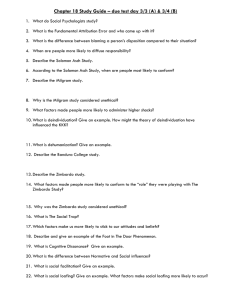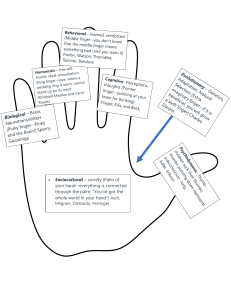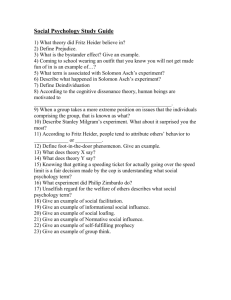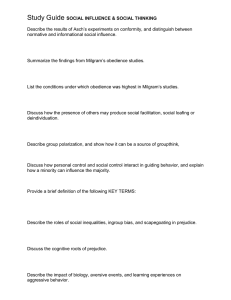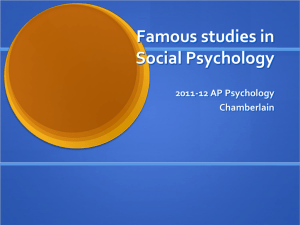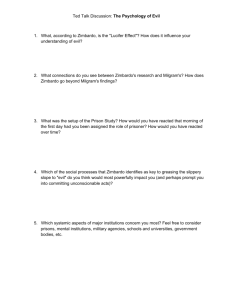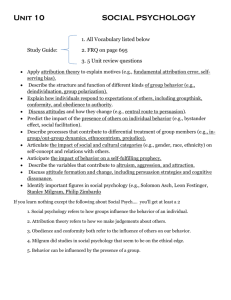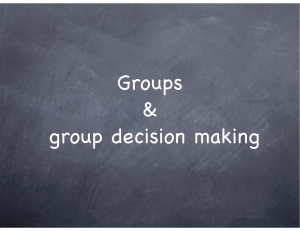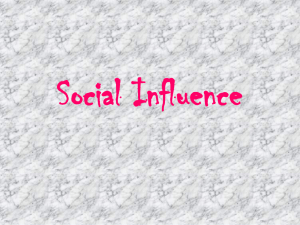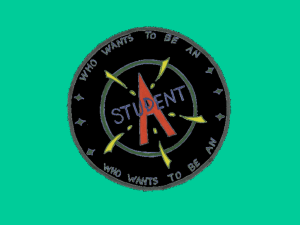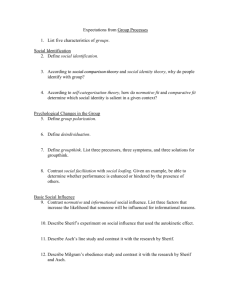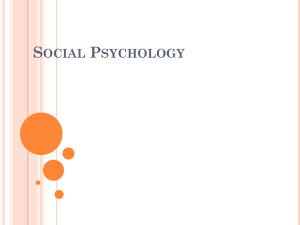Chapter 18 Study Guide What do Social Psychologists study? What
advertisement
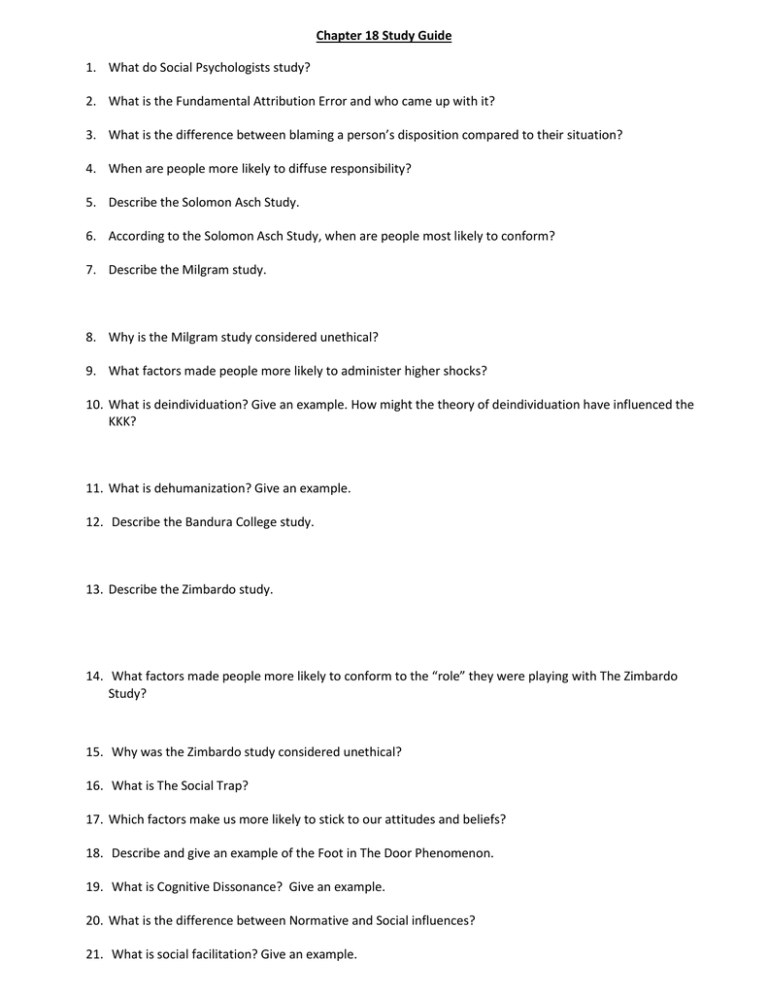
Chapter 18 Study Guide 1. What do Social Psychologists study? 2. What is the Fundamental Attribution Error and who came up with it? 3. What is the difference between blaming a person’s disposition compared to their situation? 4. When are people more likely to diffuse responsibility? 5. Describe the Solomon Asch Study. 6. According to the Solomon Asch Study, when are people most likely to conform? 7. Describe the Milgram study. 8. Why is the Milgram study considered unethical? 9. What factors made people more likely to administer higher shocks? 10. What is deindividuation? Give an example. How might the theory of deindividuation have influenced the KKK? 11. What is dehumanization? Give an example. 12. Describe the Bandura College study. 13. Describe the Zimbardo study. 14. What factors made people more likely to conform to the “role” they were playing with The Zimbardo Study? 15. Why was the Zimbardo study considered unethical? 16. What is The Social Trap? 17. Which factors make us more likely to stick to our attitudes and beliefs? 18. Describe and give an example of the Foot in The Door Phenomenon. 19. What is Cognitive Dissonance? Give an example. 20. What is the difference between Normative and Social influences? 21. What is social facilitation? Give an example. 22. What is social loafing? Give an example. What factors make social loafing more likely to occur? 23. How does Group Polarization influence group interaction? 24. How does Groupthink influence group interaction? 25. Describe the self- fulfilling prophecy. 26. What is the difference between a prejudice and a stereotype. Give an example of each. 27. What is the difference between an in-group and an out-group? What type of people make up a person’s in-group? 28. How are in-group bias and the Scapegoat Theory connected? 29. What causes people to develop prejudices? 30. What causes people to become aggressive? 31. What is the frustration aggression principle? 32. How does the media impact aggression levels? 33. What factors might increase our attraction to someone? 34. What is the difference between companionate and passionate love? 35. What are some ways to make love last? 36. What is altruism? 37. Describe the Bystander Effect. What factors make the Bystander Effect more likely to occur? 38. What is the Social Exchange Theory? 39. What are Super Ordinate Goals? 40. According to the Just-World Phenomenon, why do bad things happen to people? 41. How can Central Route to Persuasion change a person’s actions? (need to look up) 42. How can Peripheral Route to Persuasion change a person’s actions? (need to look up) 43. How might the Other Race Effect lead to prejudice? (need to look up) 44. How might the Reciprocity Norm aid in helping? ( need to look up)
